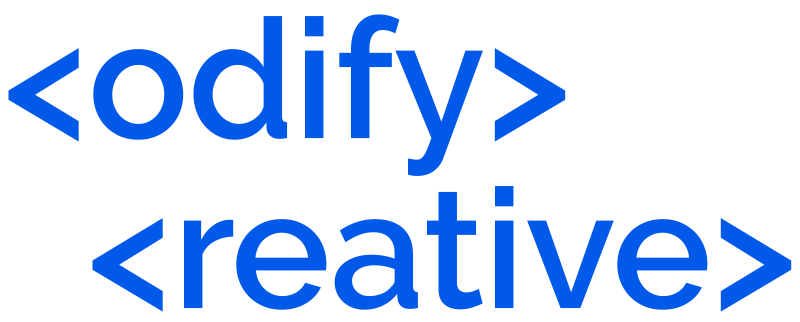In today’s fast-paced digital landscape, website speed plays a pivotal role in user experience and search engine rankings. For WordPress websites, optimizing speed is crucial to retain visitors, improve conversions, and enhance overall performance. Slow-loading websites often deter users, leading to higher bounce rates and decreased engagement. To ensure your WordPress site performs at its best, implementing strategies to speed it up is paramount. Here’s a comprehensive guide on how to optimize your WordPress website for lightning-fast speed:
1. Choose a Reliable Hosting Provider
Selecting a reliable hosting provider is critical. Look for providers that specialize in WordPress hosting, offering features like SSD storage, robust infrastructure, scalable resources, and excellent uptime guarantees. Managed WordPress hosts like InMotion Hosting, SiteGround, or BlueHost optimize server configurations specifically for WordPress, ensuring faster loading times and enhanced security measures.
Alternatively, entrusting your website hosting directly with Codify Creative can provide an all-encompassing solution. Our hosting services are meticulously tailored to optimize WordPress websites for peak performance. By hosting your site with us, you benefit from a dedicated team that ensures robust infrastructure, SSD storage, and optimal server configurations specifically designed for WordPress.
2. Utilize a Lightweight Theme
Lightweight themes are designed for optimal performance without sacrificing functionality. They have clean code, fewer design elements, and minimal bloat. Choose themes that prioritize speed and efficiency over flashy features. Well-known lightweight themes like GeneratePress, Astra, or OceanWP are highly customizable, responsive, and designed for speed.
3. Keep Your WordPress Core, Themes, and Plugins Updated
Regular updates to the WordPress core, themes, and plugins are vital for maintaining security, compatibility, and speed optimization. Developers frequently release updates to fix bugs, improve performance, and add new features. Always keep your WordPress installation, themes, and plugins updated to ensure optimal website performance.
4. Optimize Images for Web
Image optimization is crucial for faster loading times. Compress images without compromising quality to reduce file sizes. Tools like Adobe Photoshop, TinyPNG, or plugins such as Smush or Imagify can significantly reduce image sizes while maintaining visual integrity. Properly optimized images can significantly enhance website speed.
5. Implement Caching Mechanisms
Caching stores static versions of your website’s pages, reducing the server’s processing time and improving load times for returning visitors. Utilize caching plugins like WP Super Cache, W3 Total Cache, or WP Rocket to generate and serve cached versions of pages, resulting in quicker load times for users.
6. Minify CSS, JavaScript, and HTML
Minification involves removing unnecessary characters like spaces, comments, and formatting from code files, reducing their size. Plugins like Autoptimize or WP Rocket automatically minify CSS, JavaScript, and HTML, decreasing the overall page size and improving loading times.
7. Enable Gzip Compression
Gzip compression reduces the size of web files transferred between the server and the user’s browser. Enabling Gzip compression through plugins or server configurations can significantly reduce file sizes, resulting in faster loading times, especially for text-based content like HTML, CSS, and JavaScript.
8. Utilize Content Delivery Networks (CDNs)
CDNs distribute your website’s static content across various servers globally. By caching content closer to users’ geographical locations, CDNs reduce latency and improve load times. Services like Cloudflare, StackPath, or Akamai offer robust CDNs that can significantly accelerate website performance.
9. Optimize Database and Cleanup Regularly
Regularly clean up your WordPress database to remove unnecessary data such as post revisions, spam comments, trashed items, and expired transients. Plugins like WP-Optimize or WP-Sweep help optimize the database, reducing its size and improving website speed.
10. Implement Lazy Loading for Images and Videos
Lazy loading delays the loading of non-visible images and videos until users scroll to view them. This technique conserves bandwidth and speeds up initial page load times. Lazy loading plugins like Lazy Load by WP Rocket or Jetpack enable this functionality, enhancing overall website performance.
Conclusion
A fast-loading website is crucial for user satisfaction, SEO rankings, and overall business success. Implementing these strategies to speed up your WordPress website can significantly enhance user experience, reduce bounce rates, and increase online sales. Regular maintenance, optimization, and staying updated with the latest speed-enhancing techniques are essential for peak performance.
For customers who prefer not to perform this maintenance and optimization themselves, Codify Creative offers an annual maintenance package and can manage these technical aspects on your behalf, ensuring your site always runs quickly and smoothly. Codify Creative understands the significance of website speed and offers expert services to optimize WordPress websites, providing a seamless and lightning-fast user experience for our clients.


